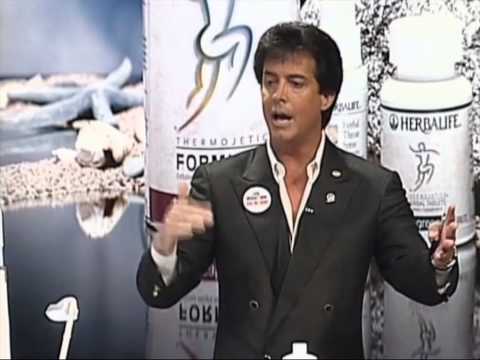Herbalife has agreed to pay $200M to consumers who they failed.
Full disclosure. We are not fans of Herbalife nor their products nor would we ever recommend them nor would we ever consume them under any circumstance. We also were neighbor’s with the wife who found Mark Hughes, the founder of Herbalife, dead at 44 years in his underwear in their mansion. We are still neighbors with one of her several ex husbands. She was Hughe’s third wife, and like all herpredecessors – was a beauty pageant contestant.
Before we get into Herbalife having to pay 200M to consumers who lost money off what many call a “scam of a company” We want to just tell you a bit about his third and final wife. We’ve not met her and are only giving a quote (which is true and vetted) from Wikipedia
This is his third (and final) wife who found the HL founder dead:

The 3rd wife of Herbalife founder Mark Hughes who found him dead in his underwear at age 44 in their mansion.
Darcy Lynn LaPier (born July 9, 1965) is an American actress and model. She is known for a series of high profile marriages.
She was married to Ron Rice, founder of Hawaiian Tropic suntan lotion company from 1991 to 1993. From this marriage, they had a daughter named Sterling. She then married actor Jean-Claude Van Damme in Bangkok,Thailand in February 1994; their marriage lasted until November 1997.[1] From this marriage, they had a son named Nicholas (born October 10, 1995).
In 1999, LaPier married Mark R. Hughes founder of Herbalife, who died the following year.[2]
After Hughes’ death, LaPier married Brian Snodgrass (of the Seven Dees nursery family) in 2002. On her ranch in Oregon with her family, LaPier transformed herself into a rodeo barrel racer. In 2013, she produced and starred in the very short lived now defunct (from what we can see) A&E reality series Rodeo Girls.’
Ah only in America would one then get their own tv series of that nature.
On to the story:
Herbalife has agreed to pay $200 million to reimburse consumers who lost money on its nutrition supplements and will also make major changes in its sales and distribution practices, the Federal Trade Commission announced on Friday.
The FTC filed a complaint accusing the company of deceiving consumers about how much money they could make selling its products, noting that most Herbalife distributors make no money at all.
But federal officials stopped short of calling the company a pyramid scheme and allowed it to keep operating. That was seen as a victory for the company on Wall Street, where Herbalife had become the target of a short-selling campaign by investor William Ackman.
Still, the FTC had extremely tough words for Herbalife and made clear it sees many of its practices as deceptive.
“Herbalife is going to have to start operating legitimately, making only truthful claims about how much money its members are likely to make, and it will have to compensate consumers for the losses they have suffered as a result of what we charge are unfair and deceptive practices,” said FTC Chairwoman Edith Ramirez.
Among other things, the FTC said Herbalife would have to revamp its compensation system so that participants are rewarded for how much they sell, not simply for signing up new distributors.
At least two-thirds of a participant’s compensation must be based on actual sales that can be tracked and verified, it said.
“This settlement will require Herbalife to fundamentally restructure its business so that participants are rewarded for what they sell, not how many people they recruit,” Ramirez said.
The FTC said in a statement that the overwhelming majority of Herbalife distributors earn little or no money:
“Finding themselves unable to make money, the FTC’s complaint alleges, Herbalife distributors abandon Herbalife in large numbers. The majority of them stop ordering products within their first year, and nearly half of the entire Herbalife distributor base quits in any given year.”
Harsh as the decision seems, it is a big blow to hedge fund manager Bill Ackman ofPershing Square Capital Management, who has been trying for years to tar Herbalife as little better than a pyramid scheme.
Ackman reportedly shorted the company by a billion dollars, essentially betting that it would fail, in which case he would have made a lot of money. But after the FTC’s announcement allowing Herbalife to keep operating, its stock price rose.
Herbalife said in a statement that many of the FTC’s allegations are “factually incorrect” but chose to accept the settlement to avoid lengthy and costly litigation.
“Moreover, the Company’s management can now focus all of its energies on continuing to build the business and exploring strategic business opportunities,” the statement said.
“The settlements are an acknowledgment that our business model is sound and underscore our confidence in our ability to move forward successfully, otherwise we would not have agreed to the terms,” said chairman and CEO Michael O. Johnson.












